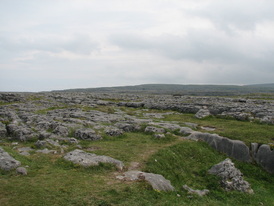 Recently I had a situation arise that inspired me to reflect on life's little annoyances. It began as a bit of an attempt at humor after being bitten at least a dozen times by fire ants. For those of you unfamiliar with fire ants, their bite is ferocious and leaves a "bump" that does more than itch: it hurts...a lot. They inject some sort of venom when they bite and the bumps linger for a while. Some of us are allergic to the venom. But even if one is not allergic, these critters can really wreak havoc on a person. My bites came with one handful of grassy weeds which I attempted to take out of my garden. It was a rather painful price to pay for a hasty decision to grab that handful. I never saw them until it was too late. Apparently these ants send out some sort of signal to one another so that they all bite at once. Seriously. Talk about a concerted effort! While very painful, since my hand swelled up so much one could not see the normally prominent ligaments and such, the situation moved me to quip that I had a list of questions to ask God when I meet Him face to face. The question, given this instance, was this: Why did God create fire ants, mosquitoes, or roaches since they seem to have no purpose whatsoever except to make humans (and animals) miserable? I was kidding when I asked the question. But then I got to thinking about this more seriously. While I have no intention of making a theological claim, my thoughts ran to where God was in this situation. This is a rather Ignatian way of thinking, and since that is both my training and my spirituality it seemed a good way to go. It is an interesting question, but the root of it is not the fire ants, etc. The root of the question is in where we find God in the midst of adversity, whether it be big or small. Truly we all have annoyances on a daily basis. We shrug most of them off and keep on moving through our day. But when there is a setback, especially one that involves physical or emotional pain, it can prove to be more challenging. The question really is not why God let something happen, or why He created something that can thwart our intentions. The challenge lies in finding our path to holiness in how we deal with these little things. Do we simply curse the cause of the annoyance and grumble the rest of the day; or worse, do we curse God? Do we rage at others when "our way" is not how the day progresses? Do we go back to bed, pulling the covers over our heads to make it go away? Or do we try to work with what has happened regardless of whether it makes sense?  How we deal with these little events will translate to how we handle the bigger challenges which are bound to come our way during our life journey. Of course, I am thinking of Job, the seemingly holy man who had his life turned upside down. In the Book of Job, we find him to be a righteous man who has it all. The author sets up the parable-like story so that we see that God allows things to happen to Job as a test, to see if Job will curse God or if he will remain faithful. Job loses everything except his life, which has been reduced to incredible suffering. Four so-called friends show up accusing him of guilt before God, believing that God has cursed him as punishment. (In those days the belief was that reward or punishment happened in this life since they did not yet believe in an afterlife.) Job tries to hang in there, arguing against his friends who are making all sorts of outrageous claims. One friend suggests that Job really is innocent, but that God made some sort of cosmic mistake, accidentally punishing the wrong person! Another takes up a similar theme, claiming that Job's parents must have sinned and so Job is paying the price somehow. These were actually common misunderstandings about the nature of suffering at the time. They believed that sick people were being cursed by God, and that calamities were a sign that God was displeased and had removed His favor. The author of the book of Job was trying to dispel these mistaken, quite superstitious, beliefs. The conclusion the author comes to is that God does not send evil, since God is incapable of that; he asserts that there is really no answer we can understand as to why God allows it. At the end of the book, God basically says that we humans cannot understand the mysteries of the universe, nor can we understand the intricacies of why things happen. It is simply too far above us for us to comprehend in this life. However, the author also points out that Job and his friends are actually asking the wrong question. The question they ask has no answer. That is, asking "why?" or "why me?" has no answer which we can comprehend. It is also a self-centered and self-directed question. The question Job should be asking is: "Where, O Lord, are you in this situation?" That question is other-centered and it definitely has an answer. The answer is: "I am here, my child, right with you in the midst of your pain and suffering. I am here, right by your side to give comfort and guidance and love." Therefore we learn that suffering will always be a mystery, but that we can come closer to the Lord and find our strength in Him. We do not have to look far to find God. He is right with us. The pain does not necessarily go away, but carrying the burden becomes easier with God's presence with us. The Book of Job is about the huge hurdles life seems to throw at us, yet I began with a bunch of fire ant bites, which are small in comparison. The story translates, however. Most of our lives consist of little hurdles which come at us daily. How we handle these will reflect how we will handle the bigger challenges. If we find God in the midst of the small things we might be able to laugh at how silly they really are, re-route our course and move on. Or we might be able to learn how to see His presence more readily, bettering our understanding of Him when we turn to Him over and over throughout the day. We can come to learn more about Him through these little events, and we can come to discover the things that really matter, rather than focusing on the little derailments and annoyances that come with day to day living.  In Jeremiah God promises: “If you seek me, you will find me.” That is, if we seek His presence when both the good and the bad happen, then we can begin to see Him with us in everything. So while I wish I never had that encounter with the fire ants, maybe it was not the worst thing. And while I still do not know why God created fire ants and other annoying critters, I realize that is not the point. The point is that it became an opportunity to seek God. He was, and is, ever present. The small indignities we suffer are very much part of the path to holiness. How we deal with them is as important as how we deal with the really serious situations. It is never easy and we are not perfect. But with God at our side we can weather the storms big and small, trusting that He is with us in each and every situation. Sometimes things seem senseless, but while we may not understand them, we can rest in our God, knowing that in the end, we will have the victory of life unending with Him. This, after all is what Christ died for. During our journey through life we need His help, which He sends us continually, to aid us in making it to the finish line. May we find God in the midst of that which is annoying and frustrating, ever comforting and ever present! May we have the perseverance to make it through seemingly impossible situations! May we learn to see with new eyes that even in the things in life which are frustrating, God sees and is with us! May we begin to see more clearly the presence of God and the many gifts He gives us each day! And May we have the ability to have grateful hearts, knowing that we never leave His sight! Let us continue to meet in the Heart of the Lord, with His mother Mary, the Queen of Heaven! Peace! The top photo is of an area in Ireland called the Burren, which I chose to give a sense of barrenness. The icon is by Rev. William Hart McNichols and is called Holy Prophet Job. The bottom photo was taken in Nova Scotia. (A reminder that the icon is copyrighted material, as is all that appears on this page.) © Michele L. Catanese
David
8/23/2013 09:15:05 am
Michele, You always - always - rise to the occasion and to have done so after such an annoying and painful experience is inspiring. You write that "The small indignities we suffer are very much part of the path to holiness"; how true, how very counter-cultural and yet how very Christ-centred. However, I'm still not sure about God's reason for creating roaches! BTW, I'm really enjoying dipping in and out of your book. Many, many thanks.
Topsie
8/24/2013 05:34:42 am
Dearest Michelle 9/26/2013 05:37:19 pm
Your writing has impressed me. It’s simple, clear and precise. I will definitely recommend you to my friends and family. Regards and good luck Comments are closed.
|
Heart Speaks to Heart
|

 RSS Feed
RSS Feed

